Microbiology
Although not often visible to the naked eye, we are surrounded by microbes. Microbes are small prokaryotic organisms that can be found almost everywhere on earth and impact us more than you think. Some are detrimental, most beneficial.
Microbes are also present in all steps and aspects of the nuclear cycle, from mining up to waste disposal, as well as industrial and medical applications of radioisotopes or radiation. Studying microbes unlocks the potential to drive desired processes as well as how to intervene in unwanted outcomes.
-
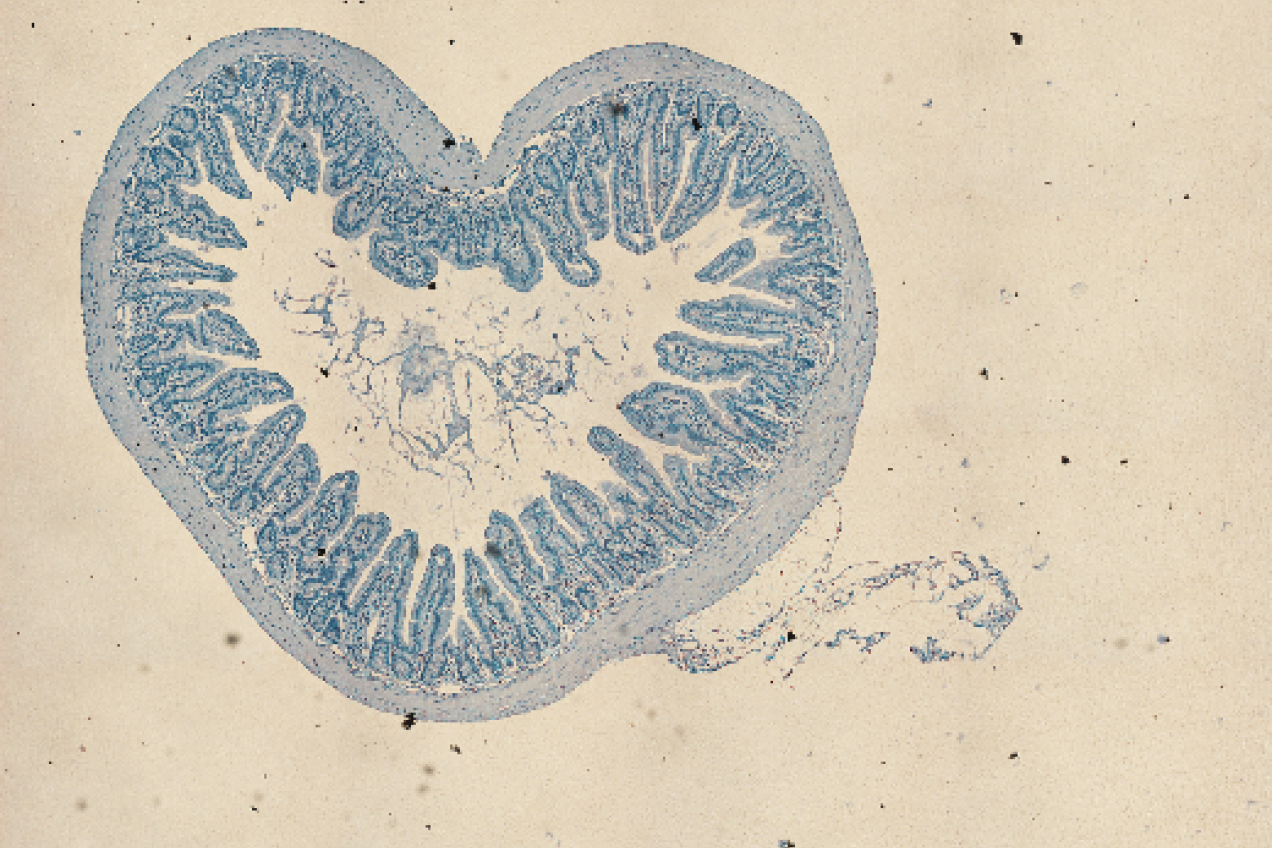
Health
SCK CEN examines the interaction between the gut microbiome and its host in radiotherapy setup. Microbiome dysbiosis leads to diarrhea and fatigue, and could even have a role in the development/progression of colorectal cancer. Increasing evidence shows that microbiome interventions can help to deal with radiation-induced health damaging effects. Two approaches are followed. The prophylactic approach focuses on using microbial (food) supplements that have been shown to have radioprotective properties. The therapeutic approach examines if (fecal) microbiota transplantation can establish a protective (gut) microbiome and prevent radiation-induced dysbiosis and enteritis.
To get an idea of our research you can look at some recent PhD studies:
-
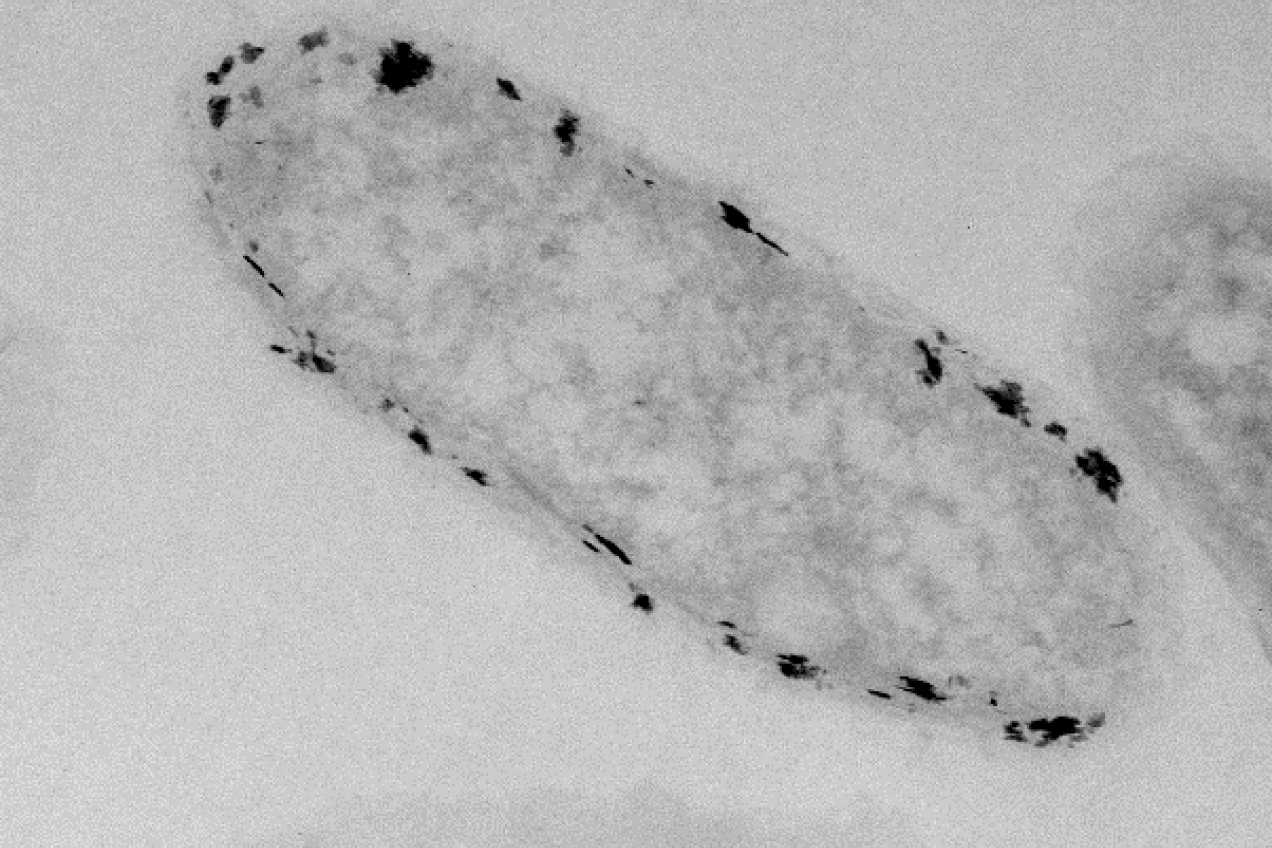
Environment
We determine the role of microbes and microbial processes in the fate of toxic metals and radionuclides in the environment. Anthropogenic activities contribute to the increased occurrence of these compounds in our environment, which poses a threat to the environment and to human health. We characterize bacterial cells and populations adapted to metal and radionuclide pollution and dissect their genetic makeup and molecular mechanisms to understand their response and adaptation to overcome toxicity and maintain homeostasis. These mechanisms can be subsequently engineered and tested for capturing and removing metal pollutants for biorecovery or bioremediation applications.
To get a flavor of our research you can look at some recent PhD studies:
-
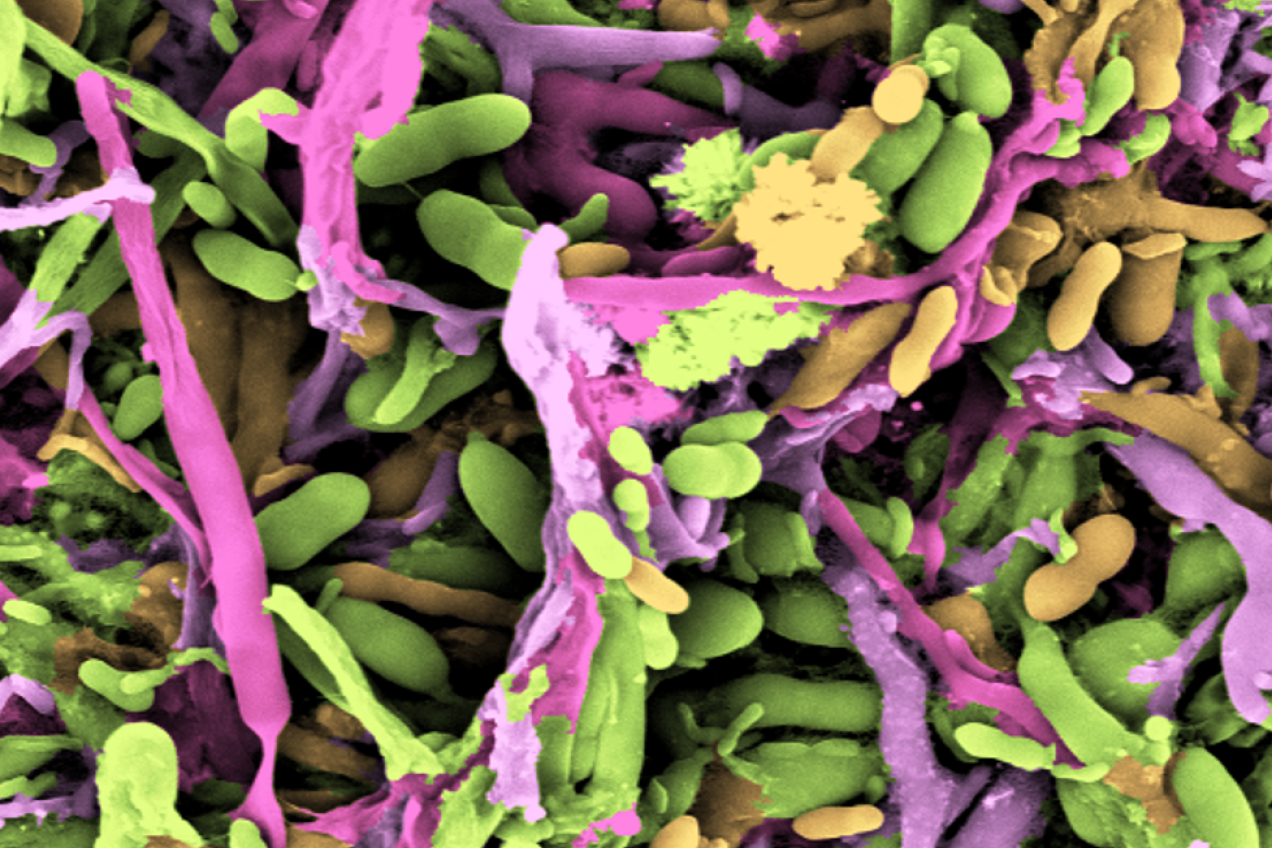
Nuclear facilities
We assess the possible impact of microbes on different aspects of the nuclear cycle. Microbial communities in the cooling water environments of nuclear reactors and spent nuclear fuel pools are studied to assess their role in biofouling, biofilms or microbial-initiated corrosion. In addition, we map and study microbial communities in the vicinity of deep geological radioactive waste repositories in order to understand how these microbes thrive in these environments, which bioprocesses they can catalyze (e.g. corrosion, gas consumption or production, production of detrimental metabolic compounds) and how this could affect the long-term integrity of the waste repository.
To get to know our research you can look at some recent PhD studies:
-
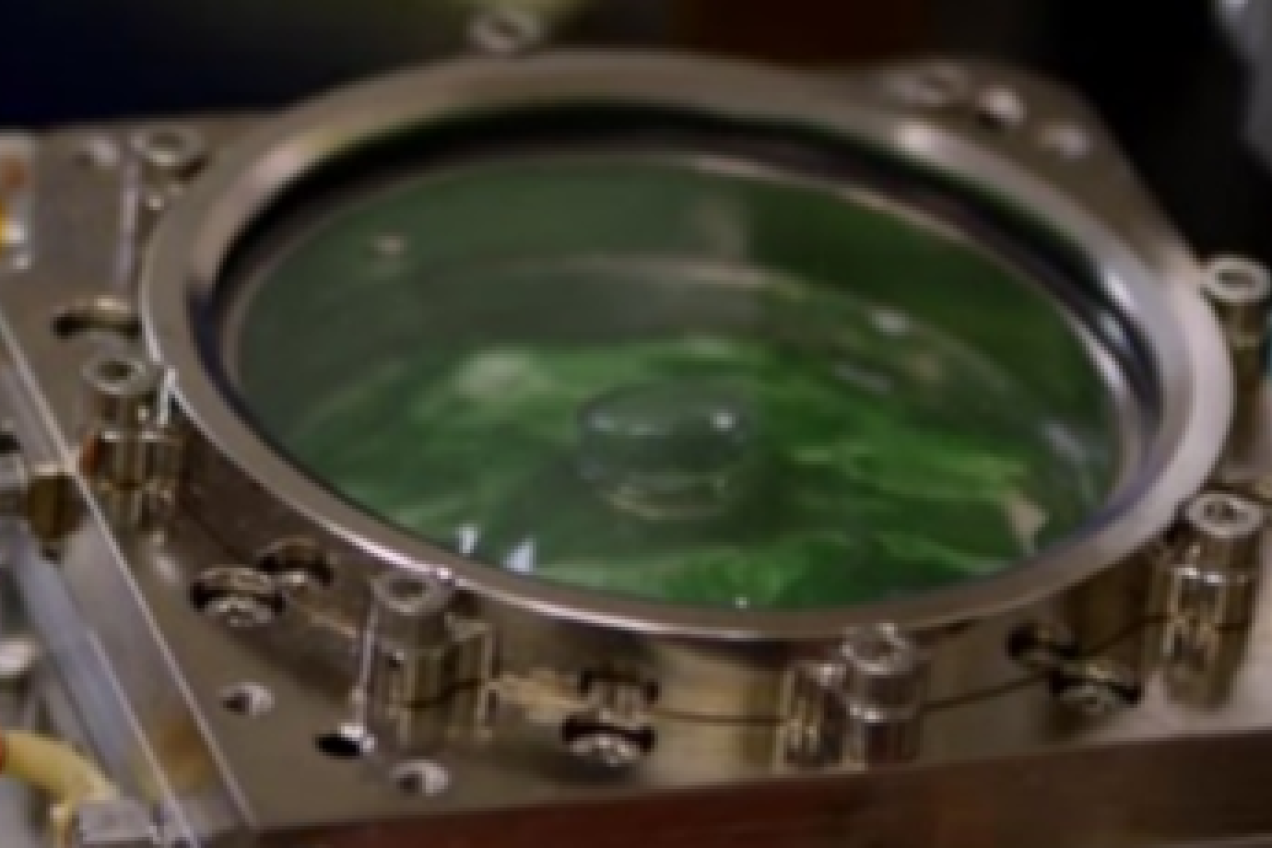
Space exploration
We study how to use bacteria and their processes to facilitate food, water and oxygen production during long-term space missions and planetary habitation. SCK CEN focusses on waste degradation via anaerobic fermentation by photosynthetic ‘purple bacteria’, nitrification, as well as the removal of CO2 and production of O2 by edible photosynthetic cyanobacteria. The behavior and biological processes are not only studied in the lab, but also with spaceflight (and space analog) experiments in order to dissect the impact of space environmental stressors. In addition, to ensure a healthy astronaut and environment, our research aims at developing innovative approaches for preventing biocontamination.
To take a look at our research you can look at some recent PhD studies:
- Mechanisms of ionizing radiation resistance in Arthrospira sp. PCC 8005
- Phenotypic adaptation and regulatory response to copper stress in Cupriavidus metallidurans
Click the button bleow to find more info about research projects.
Unique infrastructure, tools and services
-
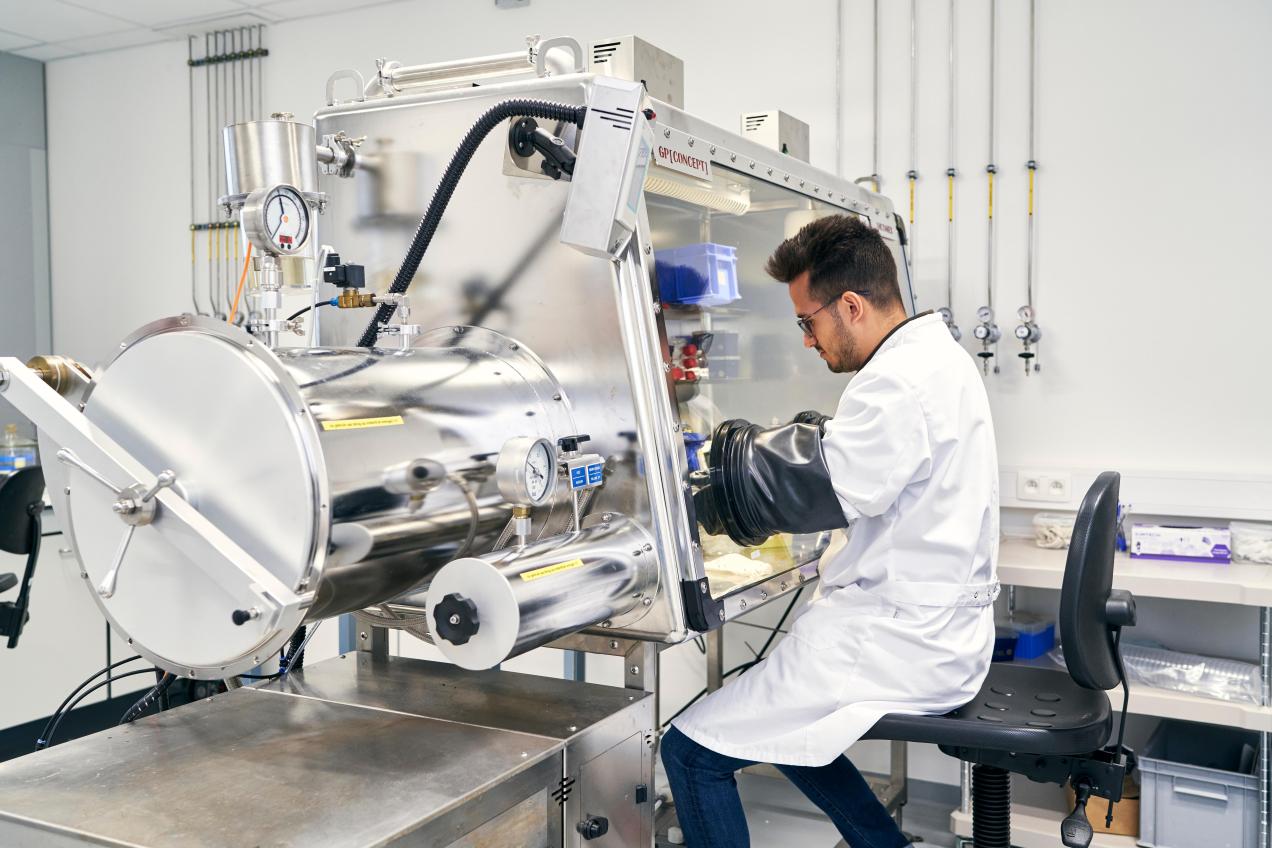
Lab infrastructure
Our biosafety level-two (BSL2) laboratory facility is equipped with state-of-the-art research infrastructure. Some unique components include sampling equipment for air, water and soil in radioactive, enclosed or subsurface environments, microgravity simulators, strict anaerobic and custom gas atmospheres for microbiological culturing and manipulation.
-
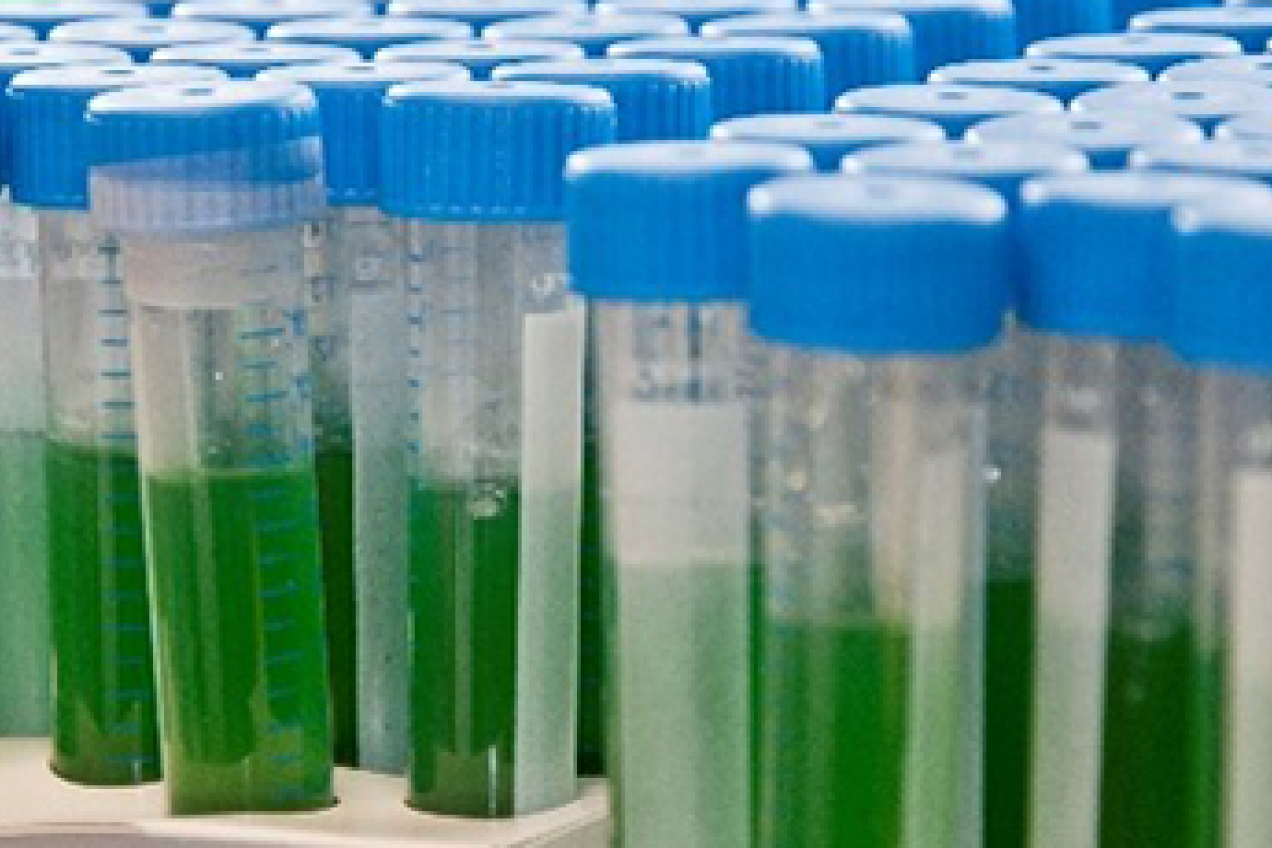
Irradiation of biological samples
We can facilitate and support the preparation of biological samples as well as the execution of irradiation experiments. Get in contact to explore the possibilities or have a look at the available capabilities.
-
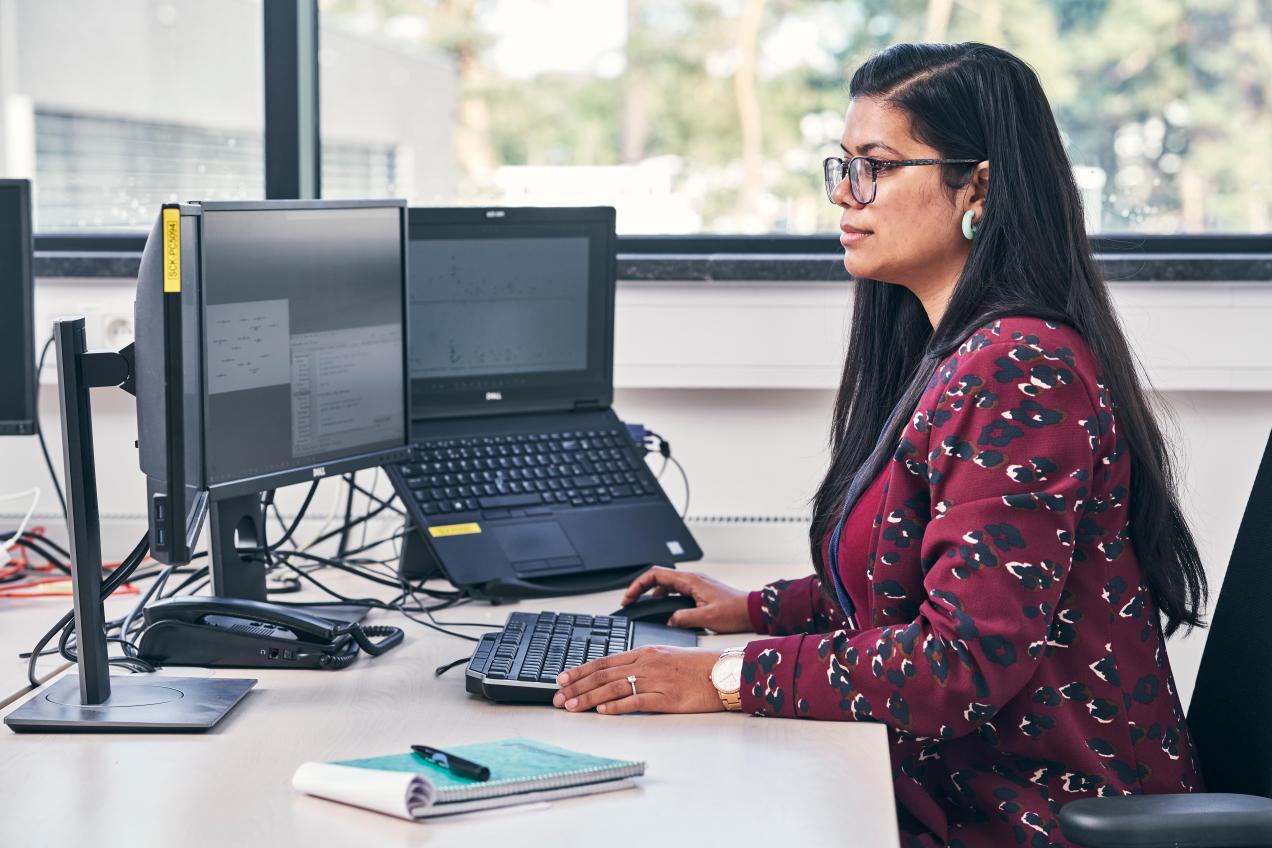
Bioinformatics
We provide bioinformatics solutions for a wide range of data sources and biological systems, including a variety of developed open source tools.
-
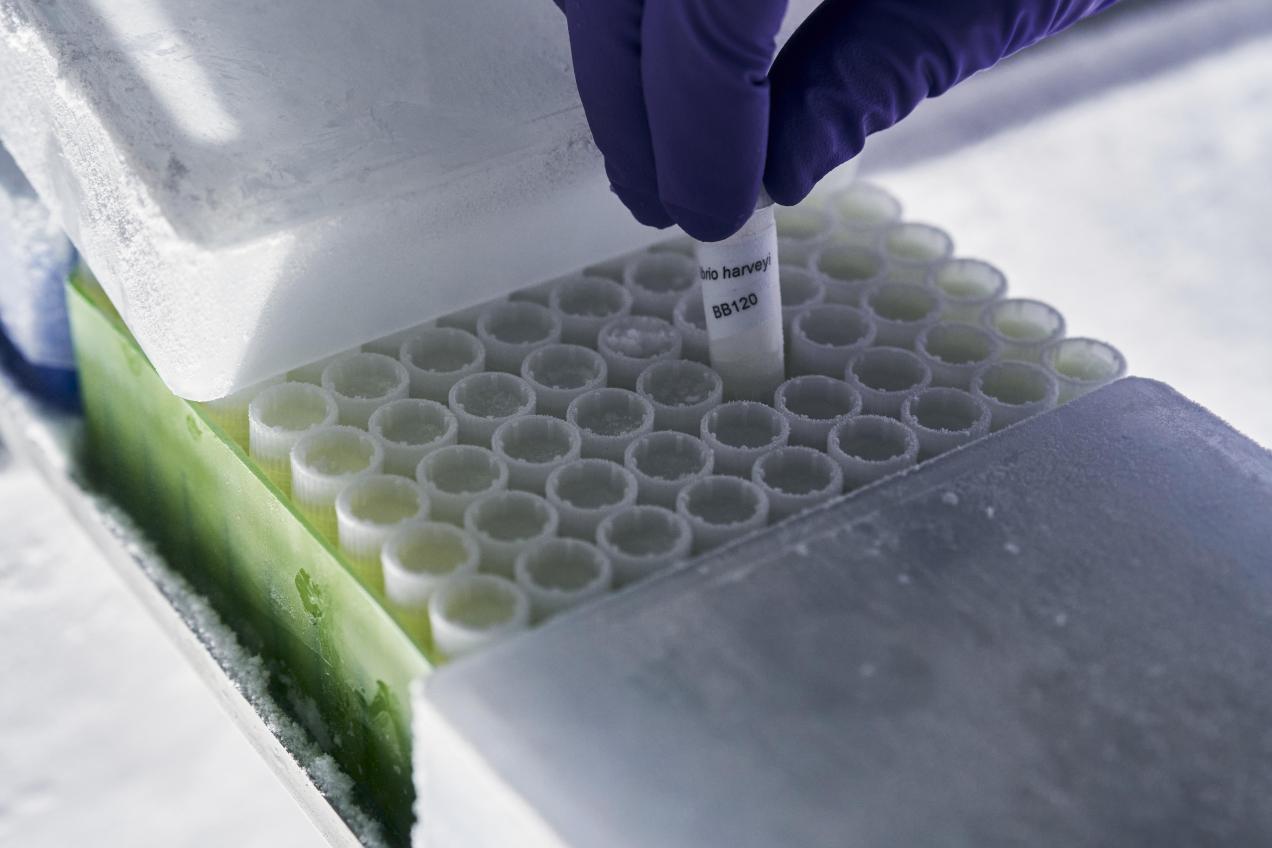
Microbial culture collection and preservation
We maintain a unique collection of more than 20 000 bacterial strains, including isolates from a wide variety of environments (e.g. metal-polluted, Antarctica, isolated and confined habitats, space industry) and with specific traits (e.g. metal resistance, broad-host-range plasmids). Thereby, we ensure microbial and genetic resources for environmental microbiology and biotechnology. Get in contact to explore our collection and possibilities. We can also help in long-term cryopreservation of your Spirulina cultures, providing an effortless and qualitative stock of your favorite Spirulina starter inoculum.
-
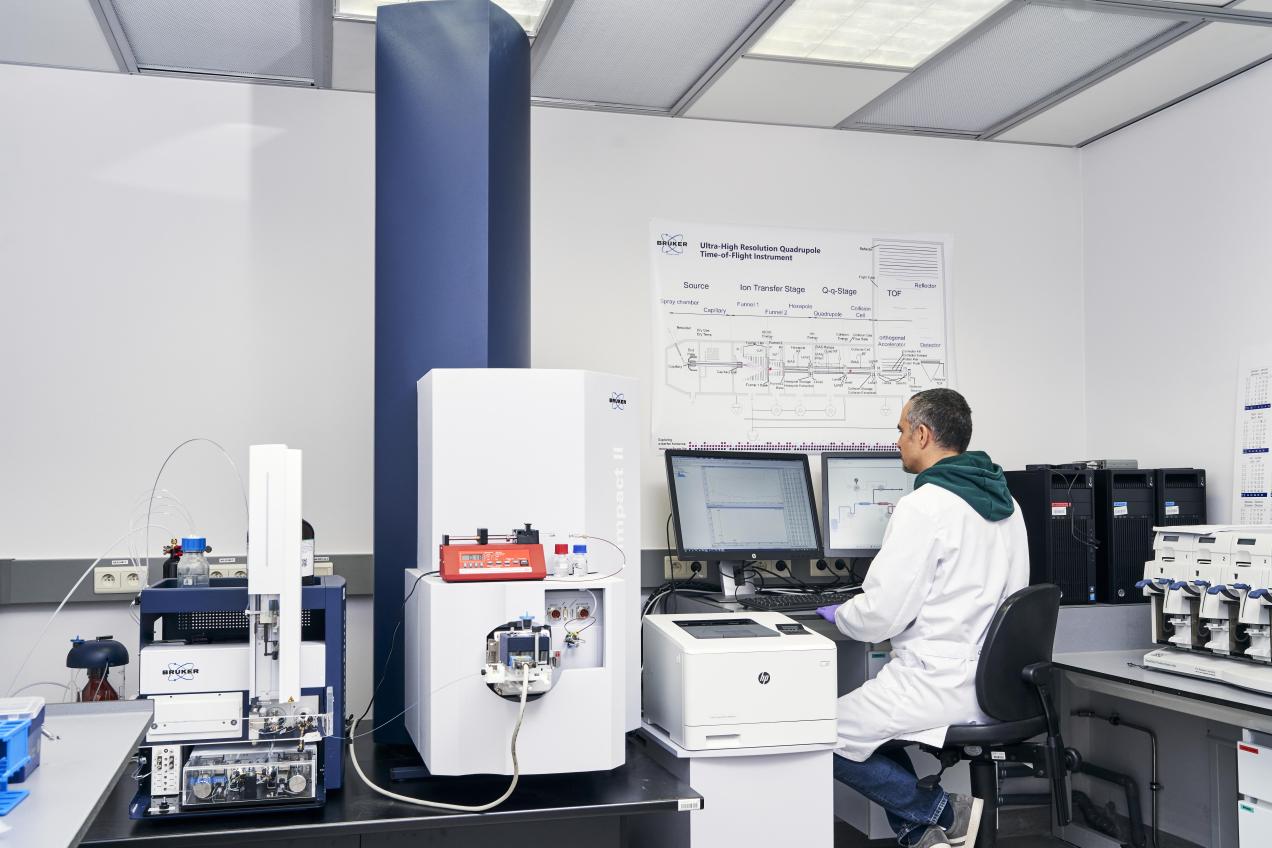
Proteomics platform
Our ultra-high resolution liquid chromatography tandem mass spectrometry system allows us to propose shotgun proteomics as well as metaproteomics applications. Relying on a strong bioinformatic platform, we are able to identify and quantify thousands of proteins from minute amount of bacteria, plants or human samples.
-
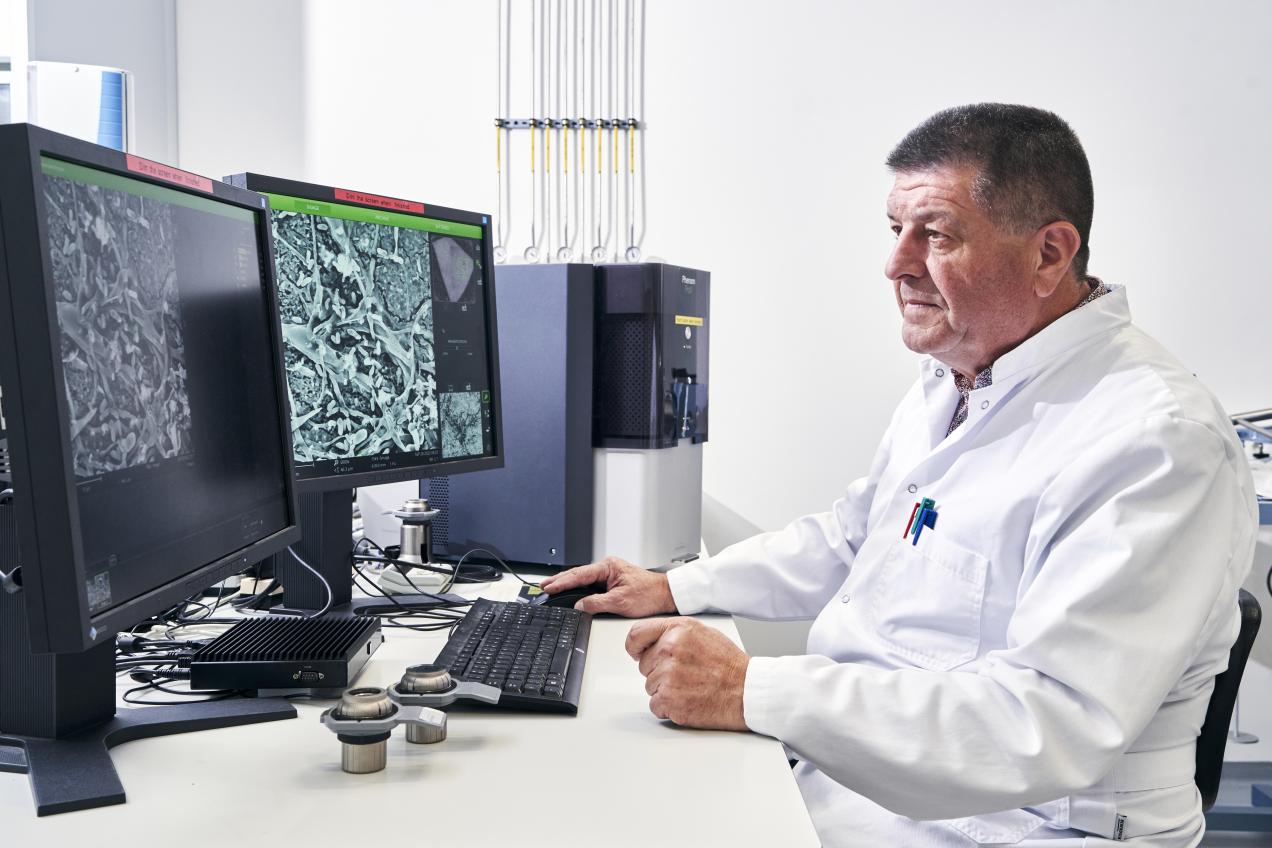
Table top SEM-EDX analytical microscope
A table-top Scanning Electron Microscopy (SEM) equipped with an Energy-dispersive X-ray analytical spectroscope (EDX) is a unique device that allows the visualization of solid samples, at sub-micrometer level, in a matter of minutes. Samples with a diameter less or even equal to 25 mm can be mounted on a stub (= sample holder) and analyzed in our table top SEM-EDX. The connection with a high class EDX provides element identification analyses of spots, lines or even whole sample surfaces.
Our team
If you like to know more about our research work, please reach out to our team.
- Dr. Ir. Natalie Leys (head of the microbiology unit)
- natalie [dot] leys [at] sckcen [dot] be (Send email)
- Discover publications
- Dr. Surya Gupta
- surya [dot] gupta [at] sckcen [dot] be (Send email)
- Discover publications
- Dr. Paul Janssen
- paul [dot] janssen [at] sckcen [dot] be (Send email)
- Discover publications
- Dr. Felice Mastroleo
- felice [dot] mastroleo [at] sckcen [dot] be (Send email)
- Discover publications
- Dr. Kristel Mijnendonckx
- kristel [dot] mijnendonckx [at] sckcen [dot] be (Send email)
- Discover publications
- Ir. Hugo Moors
- hugo [dot] moors [at] sckcen [dot] be (Send email)
- Discover publications
- Dr. Ir. Rob Van Houdt
- rvhoudto [at] sckcen [dot] be (Send email)
- Discover publications
